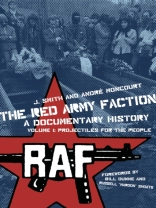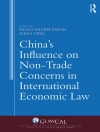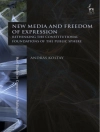The long-awaited Volume 2 of the first-ever English-language study of the Red Army Faction—West Germany’s most notorious urban guerillas—covers the period immediately following the organization’s near-total decimation in 1977. This work includes the details of the guerilla’s operations, and its communiqués and texts, from 1978 up until the 1984 offensive.
This was a period of regrouping and reorientation for the RAF, with its previous focus on freeing its prisoners replaced by an anti-NATO orientation. This was in response to the emergence of a new radical youth movement in the Federal Republic, the Autonomen, and an attempt to renew its ties to the radical left. The possibilities and perils of an armed underground organization relating to the broader movement are examined, and the RAF’s approach is contrasted to the more fluid and flexible practice of the Revolutionary Cells. At the same time, the history of the 2nd of June Movement (2JM), an eclectic guerilla group with its roots in West Berlin, is also evaluated, especially in light of the split that led to some 2JM members officially disbanding the organization and rallying to the RAF. Finally, the RAF’s relationship to the East German Stasi is examined, as is the abortive attempt by West Germany’s liberal intelligentsia to defuse the armed struggle during Gerhard Baum’s tenure as Minister of the Interior.
Dancing with Imperialism will be required reading for students of the First World guerilla, those with interest in the history of European protest movements, and all who wish to understand the challenges of revolutionary struggle.
Про автора
Ward Churchill was, until moving to Atlanta in 2012, a member of the leadership council of Colorado AIM. He is a life member of Vietnam Veterans Against the War and currently a member of the elders council of the original Rainbow Coalition, founded by Chicago Black Panther leader Fred Hampton in 1969. Now retired, Churchill was professor of American Indian Studies and chair of the Department of Ethnic Studies until 2005, when he became the focus of a major academic freedom case. Among his two dozen books are Wielding Words Like Weapons and Pacifism as Pathology.












